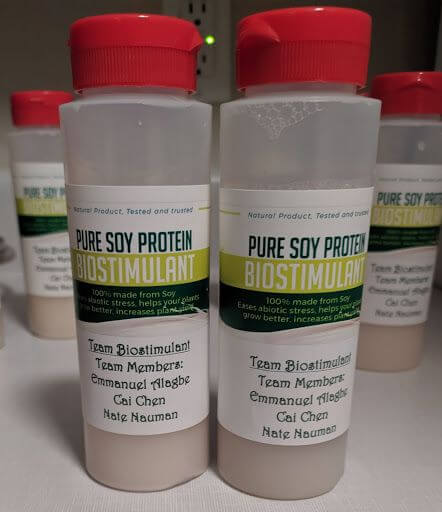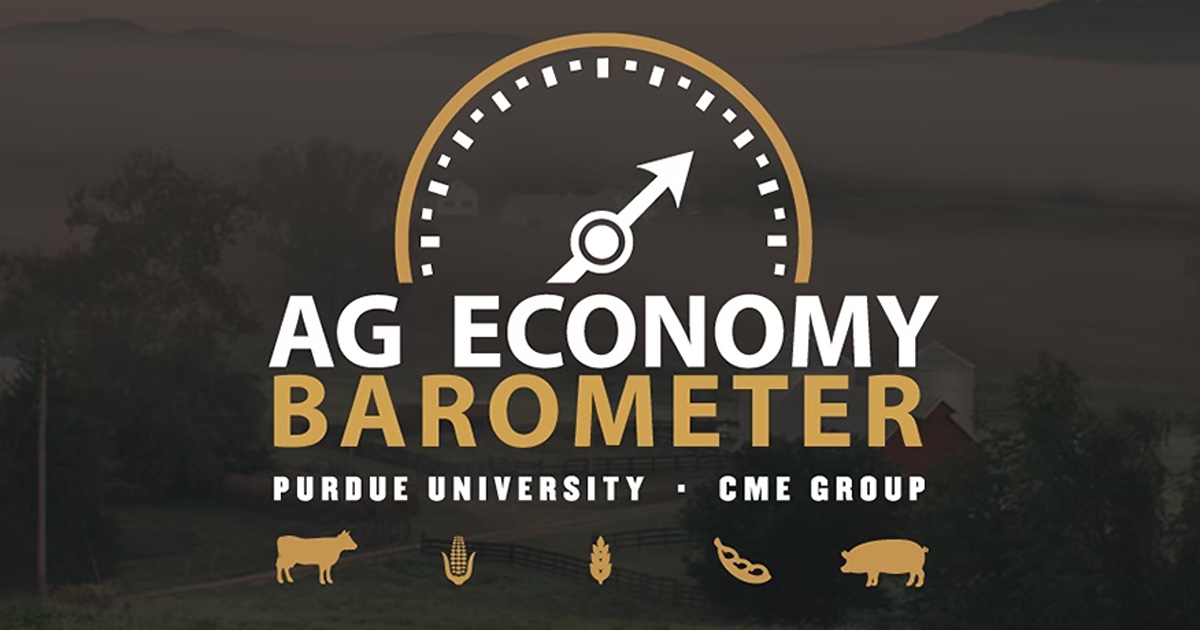Students see growth potential in competition-winning biostimulant
I
n a contest created to develop novel applications for soybeans, it’s hard to beat a 98% soybean crop stimulant that improves soybean growth.
In the 27th annual Student Soybean Innovation Competition, Cai Chen, Nate Nauman and Emmanuel Alagbe topped six other teams to claim the $20,000 prize. The competition, sponsored by the Indiana Soybean Alliance, encourages Purdue student teams to create new products or materials from soybeans.
The contest introduced several students to soybeans, including Chen, a sophomore agribusiness major. “This was actually my first time seeing soybeans in person that hadn’t been processed into something like tofu. Realizing soybeans can be turned into tools like fiber and protein isolates was inspiring.”
Livestream of the 27th annual Student Soybean Innovation Competition award ceremony (Recording provided by the Indiana Soybean Alliance)
Chen’s team had never met before their research began in September. The three students were matched after registering for the competition individually.
“We wanted to come up with an idea that was environmentally sustainable,” recalled Alagbe, a master’s student from Nigeria studying animal sciences.
Unlike fertilizer, the team’s organic crop biostimulant does not act against pests or disease, nor does it contain nutrients. Instead, it stimulates the natural processes of plants to enhance nutrient uptake, efficiency, tolerance to abiotic stress and crop quality.
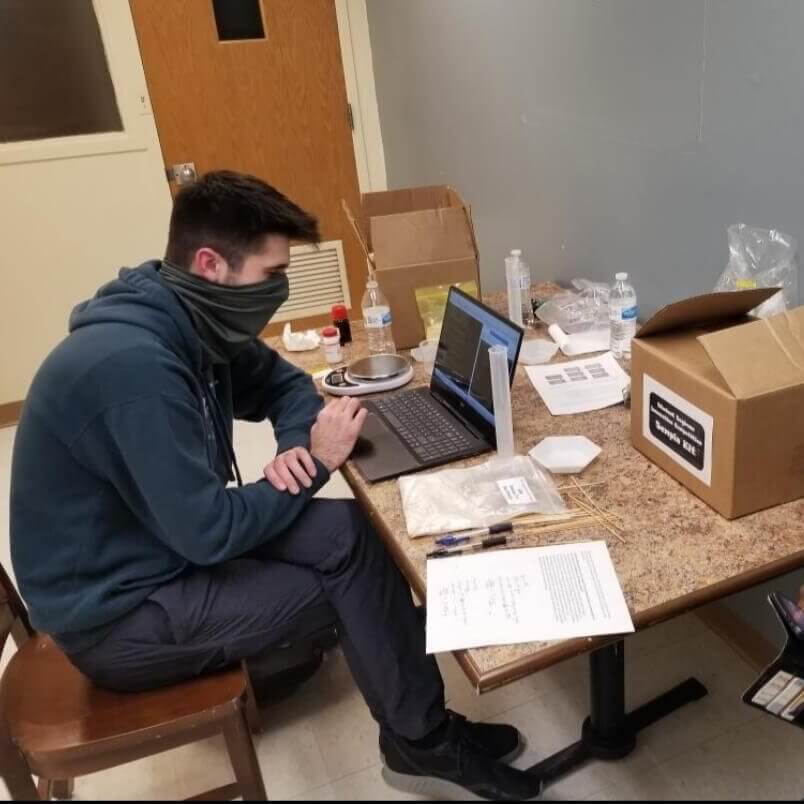
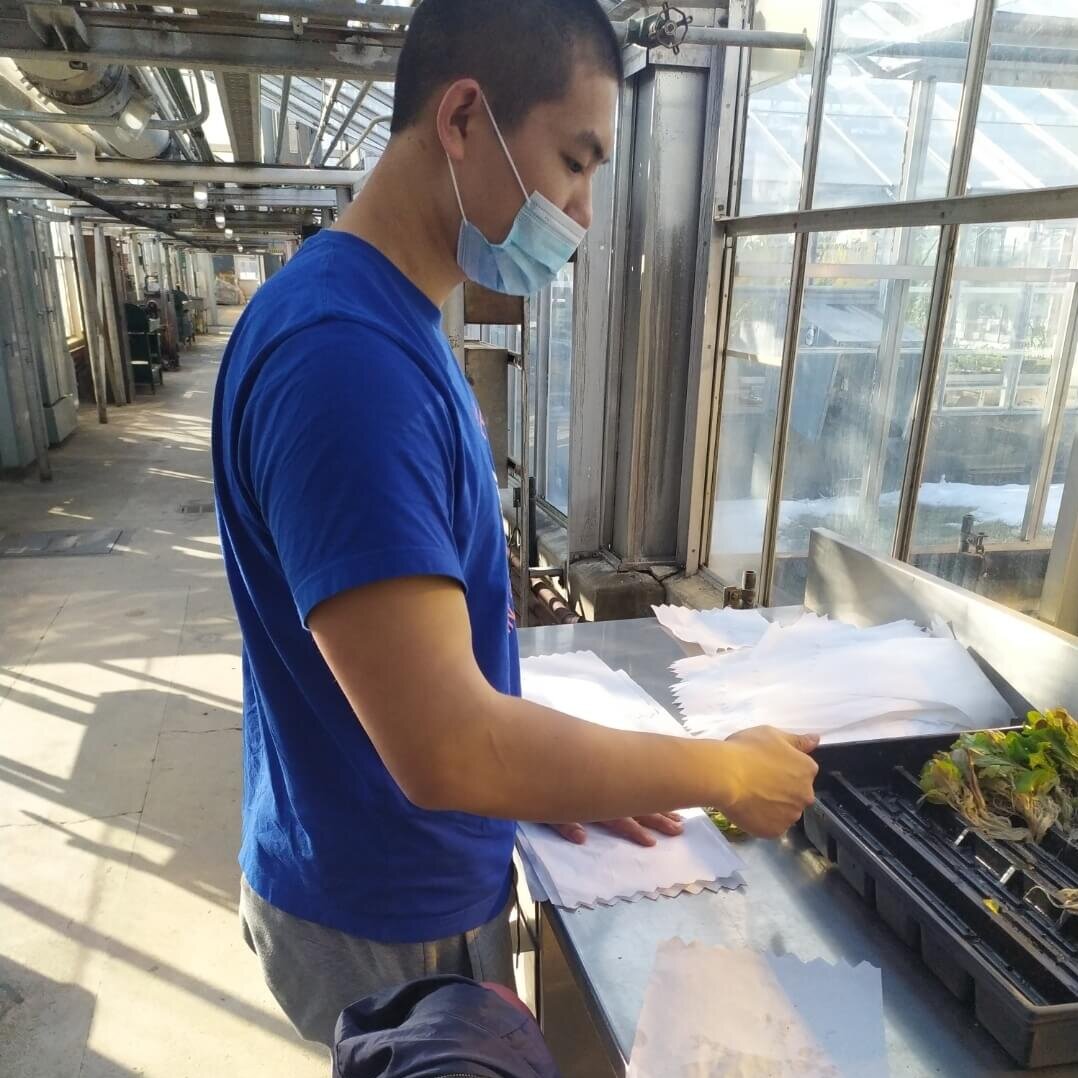
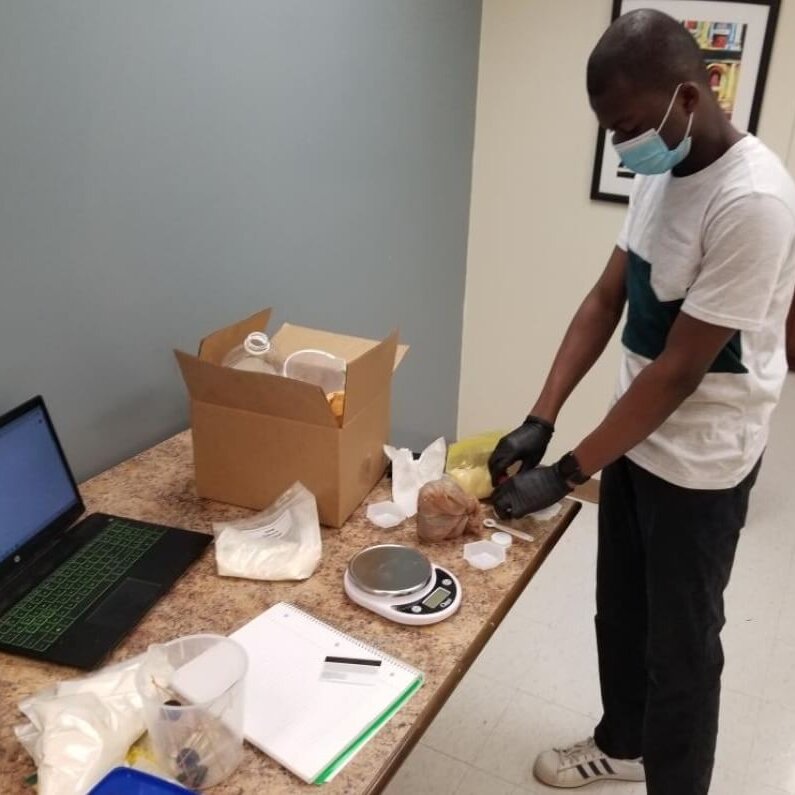
Left to Right: Nate Nauman, Cai Chen and Emmanuel Alagbe (Photos provided by Alagbe)
A relatively new field, biostimulants have a rapidly expanding user base in Europe.
“We see a lot of growth potential in the biostimulant market,” said Chen. “The global biostimulant market is projected to double by 2026, passing $5.7 billion. It is also segmented. With no single company controlling the industry, it will be easier for us to establish ourselves.”
Nauman, a sophomore in computer engineering, said the team’s winnings will allow them to buy and test their competitors’ products.
When testing their vertical farm crop biostimulant on lettuce in Purdue’s greenhouse, the team recorded a 30% increase in growth. Though they find those results encouraging, they say lettuce is just the tip of the iceberg.
“Many biostimulants on the market are only for use with nitrogen-fixing crops,” noted Alagbe. “We believe ours can be used on almost any plant. You could even put it on other soybeans to enhance their nutrient uptake.”
Alagbe and Chen said the competition and other entries, including a hypoallergenic athletic tape and a bio-degradable cosmetic face mask, opened their eyes to the potential of soybeans.
“I am in animal sciences, so the only experience I had with soybeans before the competition was feeding them to pigs,” said Alagbe. I never knew they had so many exciting applications.”
